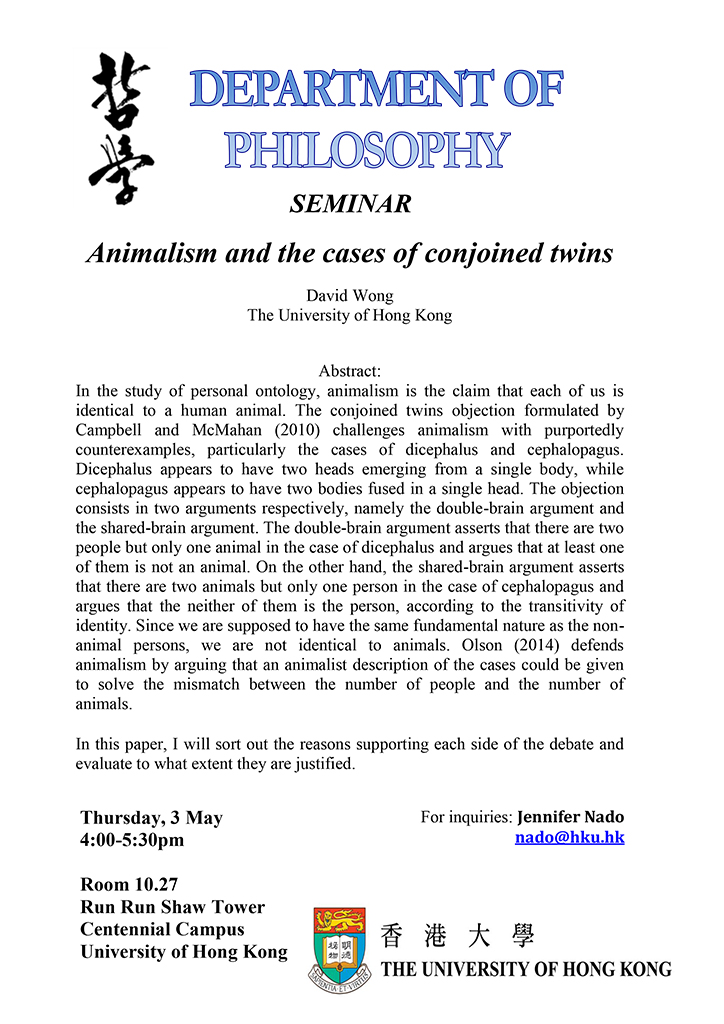
Department of Philosophy
Animalism and the cases of conjoined twins
David Wong
The University of Hong Kong
Abstract:
In the study of personal ontology, animalism is the claim that each of us is identical to a human animal. The conjoined twins objection formulated by Campbell and McMahan (2010) challenges animalism with purportedly counterexamples, particularly the cases of dicephalus and cephalopagus. Dicephalus appears to have two heads emerging from a single body, while cephalopagus appears to have two bodies fused in a single head. The objection consists in two arguments respectively, namely the double-brain argument and the shared-brain argument. The double-brain argument asserts that there are two people but only one animal in the case of dicephalus and argues that at least one of them is not an animal. On the other hand, the shared-brain argument asserts that there are two animals but only one person in the case of cephalopagus and argues that the neither of them is the person, according to the transitivity of identity. Since we are supposed to have the same fundamental nature as the non-animal persons, we are not identical to animals. Olson (2014) defends animalism by arguing that an animalist description of the cases could be given to solve the mismatch between the number of people and the number of animals.
In this paper, I will sort out the reasons supporting each side of the debate and evaluate to what extent they are justified.
For inquiries: Jennifer Nado (nado@hku.hk)
Date: 3 May 2018 (Thursday)
Tmie: 4:00pm – 5:30pm
Venue: Room 10.27, Run Run Shaw Tower, Centennial Campus, HKU
